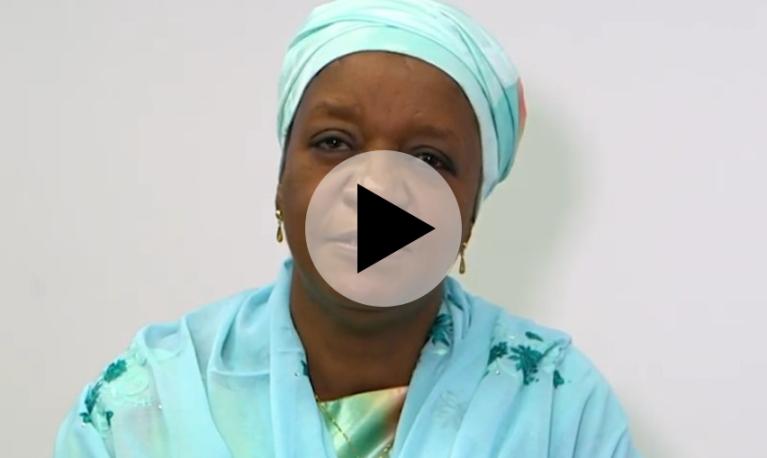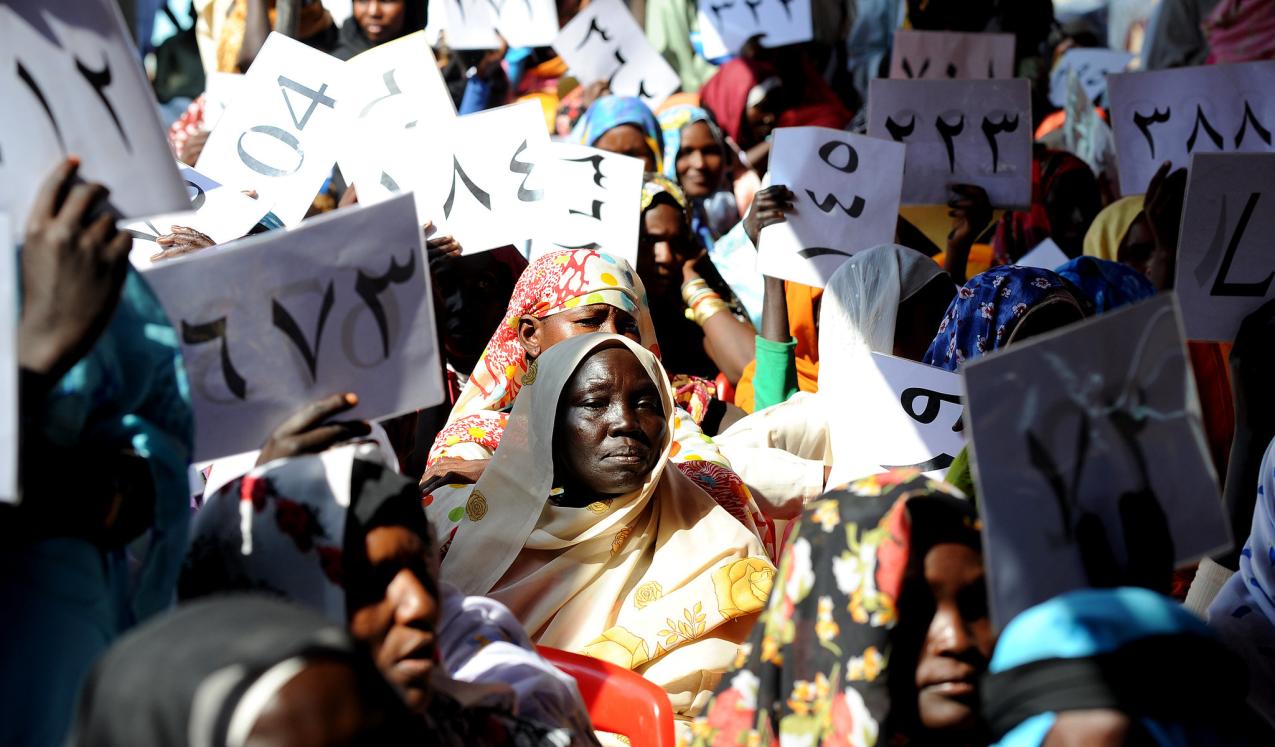
- Interview
- 16 September 2020
Gender norms, intersectionality and social protection: In conversation with UNICEF's Dr Zahrah Nesbitt-Ahmed
- Published by: ALIGN
About Dr Zahrah Nesbitt-Ahmed
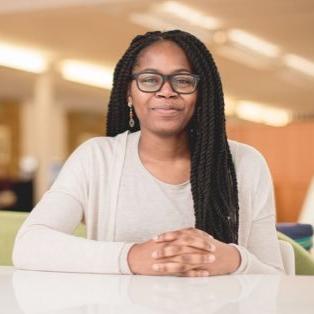
ALIGN: What does African feminism mean to you and what issues does it aim to address?
ZNA: To me, it’s about self-discovery. It’s also a journey – as most feminism is – but one in which my identity as an African woman is central to my process of learning, reflecting and unlearning. It is also about how I embody feminism on a daily basis, and in all that I do (professionally and personally).
"African feminism is broad and means different things to different people."
Beyond myself, African feminism is broad and means different things to different people. But at its core it is a movement of African women (on the continent and in the Diaspora) who advocate for the rights of women and girls on the basis of equality across different domains: demanding change in attitudes towards sexual harassment, addressing the unequal distribution of care work, access to social protection, fair wages, equal opportunities for political leadership. They are doing this in their own way, reflecting histories, and the different socio-economic, political and cultural structures across the African continent and within their own contexts of where they live and in their daily lives. While I identify as an African, I am an African living in a Western society, so my experiences also differ – reflecting the multiplicity of feminism in Africa and in the Diaspora.
Feminism can also have negative connotations, e.g. seen as anti-African (in terms of traditional African cultural systems and practices) and having its own divisions (including around class and sexuality), which comes with its own challenges.
ALIGN: Who inspires you?
ZNA: So many African feminists inspire and influence me. They include some I know well, such as Fatimah Kelleher (International Women’s Rights Strategist and Technical Advisor), Nana Darkoa Sekyiamah (Director of Communications and Tactics at the Association for Women's Rights in Development (AWID), and writer and co-founder of the award-winning blog, Adventures from the Bedrooms of African Women), Kinna Likimani (Director of Special Programme at Odekro, a parliamentary monitoring organisation in Ghana). And there are others I have met online: Françoise Kpeglo Moudouthe (activist and the curator of the feminist platform Eyala) and Dr. Rama Dieng (Lecturer in African Studies and International Development), in particular.
There are also Twitter hashtags such as #AfriFem (which is a treasure!) bringing together different African feminist voices and thinkers for sharing, caring and learning, and books by Buchi Emecheta, Nawal El Sadawi, Lola Shoneyin, Tsitsi Dangaremgba, Professor Pumla Dineo Gqola and so many more – all of these have inspired my feminist journey.
ALIGN: Gender norms are the implicit rules which people abide by – often causing harm and discrimination. They are difficult to ‘see’, so how can we change them?
ZNA: Because gender norms are implicit, informal, pervasive and deeply entrenched, they take sustained effort and time to change. First, we must acknowledge that there is no ‘quick fix’ - gender norms can be resistant to change largely because they often considered ‘normal’. Remember, some men and women benefit (or think that they benefit) from the status quo, which means changing gender norms can lead to backlash.
Second, attitudes and practices do change all the time, and in different contexts throughout life (e.g. shared caregiving in the household and men’s involvement in unpaid care work). So we need to encourage people to question and challenge their own deeply held beliefs, particularly around harmful and discriminatory gender norms.
"Changing gender norms means addressing the power relations, dynamics and structures that reinforce gendered inequalities."
Third, changing gender norms means addressing the power relations, dynamics and structures that reinforce gendered inequalities. For example, greater exposure to new ideas and practices through formal channels (legislation or change in institutional policies) and informal channels (conversations to change the narrative, role models or media) can drive norm change.
ALIGN: How do race and class and other identities intersect with gender norms in your experience?
ZNA: I approach everything I do from an intersectional feminist lens and find it difficult to separate issues of gender and women’s rights from issues of race, ethnicity, class, migrant status, and other intersecting identities (such as sexuality and disability). Obviously, this is also context specific, but we should also reflect on these intersecting inequalities when talking about gender norms, as some people are subject to all of them. And while gender norms affect everyone, their impacts are not uniform. The most marginalised people feel the greatest impact — Black and Brown women, indigenous women, migrant women, women in rural areas, girls, adolescent girls, girls living with disabilities, trans and gender non-conforming adolescents.
"While gender norms affect everyone, their impacts are not uniform"
At the same time, I know that exploring gender norms from an intersectional perspective and getting people to connect race, class and other identities with gender norms can be challenging. For starters, people might not know how to talk about gender norms in this way, e.g. the importance of promoting critical reflection and dialogue to question attitudes and values. And if they do, they don’t always link them to race and class, for example. This is why, to me, intersectional feminism (and supporting scholarship, activism, movements, organisations that adopt an intersectional approach) is so important. It captures the voices of women, girls, men and boys experiencing those different forms of exclusion and oppression so that we can understand inequalities in their time and context. It also means truly acknowledging the historical contexts that surround an issue.
ALIGN: What are the current intersectional approaches to support gender equality and social justice in Africa, and what can we learn from them?
ZNA: As I mentioned, I am constantly learning what it means to be an African feminist and also learning from the women on the continent who risk everything to challenge unequal power structures and the patriarchy on a daily basis. African feminists use many approaches, but I will just touch on some recent ones here.
A recent interview series, Talking back: African feminisms in dialogue, curated by Dr Rama Saleng for Africa is a Country, outlines the relevant approaches. The series notes that feminists movements organise themselves offline (including queer feminists in Ghana), as well as online via digital platforms across Africa and transnationally. The African Women’s Development Fund has re-launched a series envisioning African women’s and girls’ economic futures, with the first article from Fatimah Kelleher looking at macroeconomic pathways.
The recent African Feminist post-Covid 19 economic recovery statement is another approach. The statement highlights the hard and critical work of African feminist movements. This has included producing data and building ground-up movements, ensuring recognition for the gender dimensions of prevailing policy models (including unpaid care and domestic work, and informal work), and climate resilience.
The lesson here is that the African feminist movements are creative and bold, with online and offline activism, and women using their art, voice or platform to demand equal rights. There are also spaces where empathy, healing and deep self-reflection are encouraged and practised.
ALIGN: What is the role of representation and leadership in addressing intersecting inequalities?
ZNA: I think representation is important, but it’s also about who is representing – who has access, who is in the room where decisions are made, and who you are listening to. Much depends on whether those in the room feel that gender norms and intersectionality are important or not to the discussion. This is why we also need more representation from people who are living through the experiences that are driving social movements. Fighting for rights isn’t new. Many people have advocated for the rights of different groups for decades, including African feminists and women’s rights organisations around sexuality, culture and religion. What might be new is that more scholars and communities of activists are increasingly able to get into spaces where decisions are made, and work hard to ensure those in privileged positions listen and put in the necessary work needed for change.
ALIGN: How can we bring the voices of the marginalised into that room?
ZNA: The current context, where a lot is happening remotely, could be an opportunity. However, some groups are still excluded because not everyone has access to the internet, let alone good quality internet connections. It can also be very expensive to join all the zoom meetings and webinars if you live in Ghana and Nigeria, for example, rather than England or Italy. What also matters is whether activists (including young ones) can use the internet as a space - a sort of “digital room” if they cannot be in the physical room - where they can be heard and create some sort of a mass momentum.
An earlier example was given from Africa is a Country, but there are plenty of online dialogues being created with different groups of feminists making their voices heard (e.g. #FlipTheScript campaign – a series of conversations with African feminists curated by Eyala blog in partnership with Oxfam International’s Enough Campaign, which was about transgressing the norms and creating new narratives for African women).
At the same time, however, the Anglophone dominance means that we might miss particular voices. I welcome attempts in international development to bring other western languages such as Portuguese, but also indigenous languages, as is happening in several African countries (and more should be done to support these kinds of productions and sharing of multi-lingual content). Moving slightly away from the development industry, I have noticed in the African literary industry – a move to not only work across languages, but also beyond text to work in different forms, including visually and orally (e.g. the Jalada Translation Project and the virtual literary festival - Afrolit Sans Frontieres Festival).
ALIGN: Do you see anti-poverty programmes, such as social protection, helping to change gender norms?
ZNA: Absolutely. Gender norms have emerged as a priority within social protection systems for the achievement of gender equality. This is crucial because women and girls might be less likely to participate or benefit from social protection programmes if we do not acknowledge the ways in which certain norms (e.g. around unpaid care and domestic work) affect their involvement. This is a key aspect of the research programme I manage at UNICEF’s Office of Research – Innocenti: Gender-responsive age-sensitive social protection (GRASSP).
GRASSP seeks to strengthen the gender-responsiveness of social protection systems in low- and middle- income countries (LMICs) by building a robust evidence base focused on ‘what works’, ‘how’, and ‘why’ to contribute to enhanced gender equality outcomes across the life-course. As part of the programme, we are investigating how social and gender norms influence the design and implementation of social protection systems and the outcomes of programmes.
"Social protection can potentially be transformative and change behaviour or trigger reflection"
A literature review from our GRASSP programme also indicates that social protection can help to address or shift gender norms (e.g. public work programmes that provide childcare facilities, flexible working hours and work near participants’ homes). While they may not change norms directly, they can reduce the unintended consequences that result from not considering norms. Although, it is important to note that even when programmes are designed with gendered norms, such as care work, in mind, women can be excluded by poor implementation. Flexible working hours and crèches, for example, may be available in theory but not in practice, as in India’s Mahatma Gandhi National Rural Employment Guarantee Scheme (MGNREGS).
Social protection can also potentially be transformative and change behaviour or trigger reflection, which can help to shift discriminatory gender norms – e.g. integrating awareness-raising initiatives or encouraging men’s participation in unpaid care work.
ALIGN: Are there instances when anti-poverty programmes reinforce or perpetuate gender norms?
ZNA: Yes. The traditional design of many social protection programmes has been influenced by women’s roles as mothers and carers and has, albeit often inadvertently, reinforced gender norms. For example, cash transfers often target women because of the belief that they are more likely to spend the money wisely: e.g. more on the care of their children and other vulnerable household members.
There can also be some positives, however. For example, targeted cash transfers for women can enhance women’s position in their households. At the same time implementers must consider if other behaviour change programmes are working with men and boys, or elders within the community to prevent backlash against women and girls. And if, where women receive cash transfers directly, there are measures in place to build their confidence and amplify their voice. Also, what happens to men when you target only women as carers? Do they feel that their role as carers are being ignored? GRASSP's work aims to address some of these tough questions.
Also, overlooking unpaid care work could lead to programmes reinforcing women’s time poverty or that of adolescent girls who may take over their mothers’ work so that their mothers’ can fulfil the conditionalities of the programme (e.g. Mexico’s Prospera, previously Progresa/Oportunidades).
GRASSP aims to understand how gender norms are experienced not only by individuals and households, but also by policy makers and implementers, and how this, in turn, influence social protection systems.
ALIGN: Do you think cash plus programmes – or specific activities – could be more effective in addressing harmful gender norms? What should anti-poverty programmes take into account to shift norms?
ZNA: Regarding what anti-poverty programmes should consider - there should be more awareness that gender norms are deeply entrenched and more context-specific assessment of the way in which norms influence different stages of social protection. This is something GRASSP will gather evidence on to share with policy-makers and implementers. Also, awareness that norms will, for example, influence the way you design, target and deliver a programme, as well as public buy-in. An acknowledgement of gender norms in social protection is about acknowledging that you can’t divorce issues of poverty and inequality from issues of power.
"You can’t divorce issues of poverty and inequality from issues of power."
Evidence shows that cash alone is not enough. They have to be integrated with other initiatives, and this is where ‘cash plus’ programmes could come in. For example, cash plus programmes that include behavioural change communications, awareness raising, public information campaigns, or provisions to incentivise sharing care work, can potentially contribute to changing gender norms. This is also something GRASSP will be exploring. So, watch this space!
This interview was conducted in August 2020 by Carmen Leon-Himmelstine, Senior Research Officer at ODI, on behalf of ALIGN.
This Q&A is part of an interview series by the Overseas Development Institute, and its Advancing Learning and Innovation on Gender Norms (ALIGN) project, to profile and amplify the voices of feminist and gender-sensitive leaders and influences. The series aims to inform actors working on gender equality and sustainable norm change on how to support women in decision-making and to promote learning on intersectional approaches to gender equality.
This views in this interview are those of the interviewee and do not necessarily reflect the views of UNICEF, ALIGN, ODI and our funders.
- Tags:
- Intersectionality
- Countries / Regions:
- Global
Related resources
Interview
7 July 2020
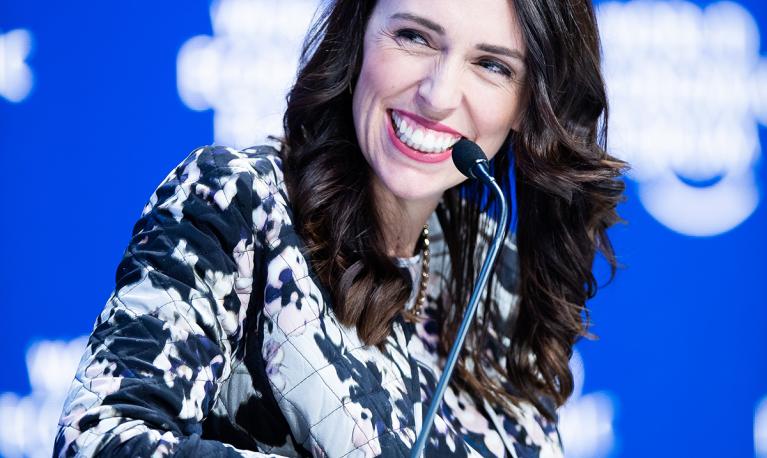
Interview
16 September 2020
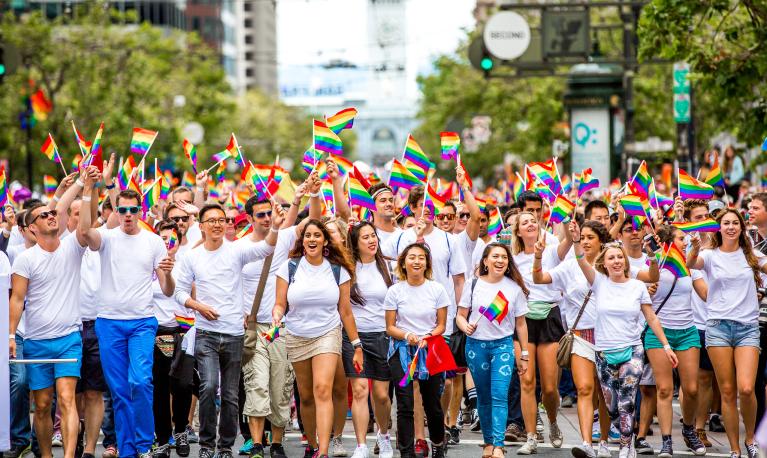
Video/podcast
18 November 2019
